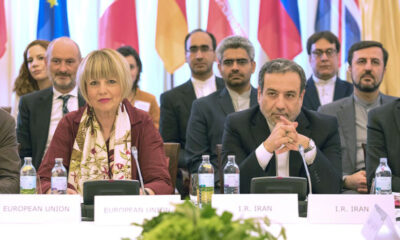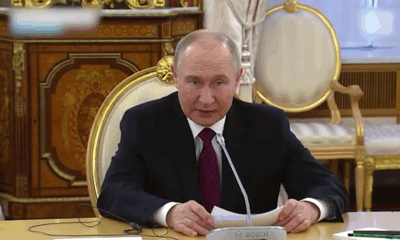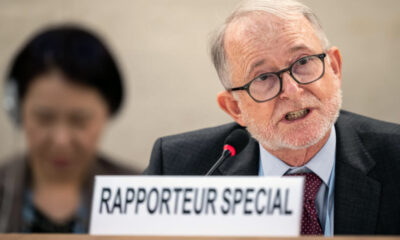Latest News
Kabul residents concerned over increased power outages
According to them, if the power company does not solve the problem, people will face more challenges.

Kabul residents are concerned that electricity outages have significantly increased recently in the capital.
They say that in 24 hours, they get electricity for only a few hours.
According to them, if the power company does not solve the problem, people will face more challenges.
“We want the government to improve the electricity situation. Diseases have increased a lot. There is no electricity. There is only two or three hours of electricity in 24 hours,” said Sediqullah, a resident of Kabul.
Mojtabi, another resident of Kabul, said: “Electricity outages usually increase during summer. I think water issues could also have a role. The residents of Kabul and myself, who study here, are facing a shortage of electricity.”
Officials at Da Afghanistan Breshna Sherkat (DABS), the country’s national power utility company, emphasize that with the increase in electricity consumption, there will be more outages, however, they are working to address the problem.
“We sometimes give outages to our customers during the day, and outages are also planned for the night. In Kabul and its neighboring provinces, we consume about 400 megawatts of electricity, which does not cover the needs of the provinces,” said Safiullah Ahmadzai, the commercial deputy head of DABS.
Currently, the majority of the electricity needed by Afghanistan is imported from neighboring countries, and Afghanistan pays more than $300 million to these countries annually.
Although the focus of the Islamic Emirate is to produce electricity from domestic sources, experts say this needs more time and until the needed electricity is provided from domestic resources, the problem of outages will remain.
Related stories:
Kyrgyzstan and Tajikistan to supply electricity to Pakistan via Afghanistan next year
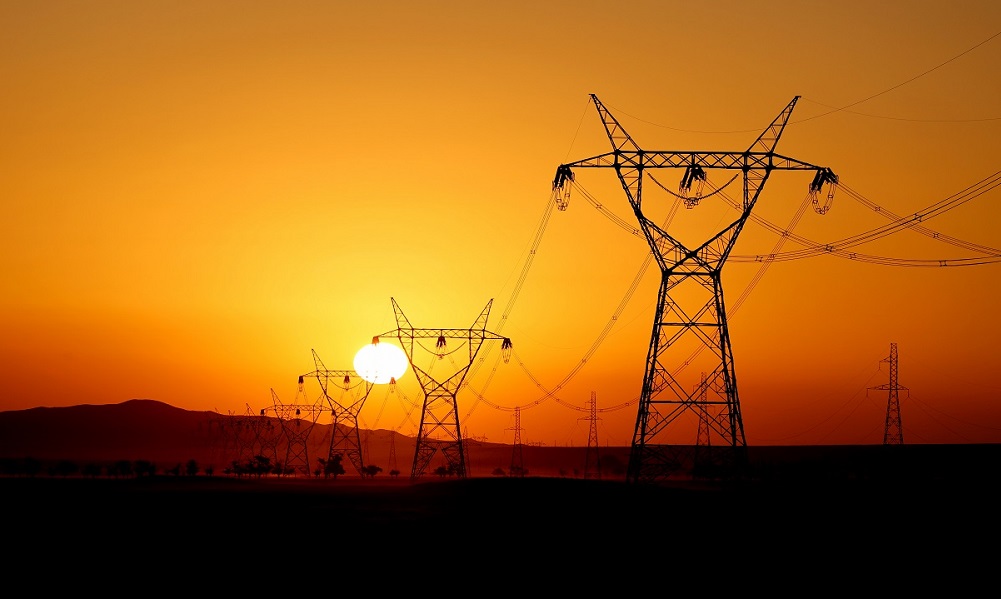
Deals worth 4 billion afghanis signed for electricity, construction projects

Latest News
Uzbek and EU envoys meet, discuss Afghanistan

Uzbekistan’s Ministry of Foreign Affairs says the special representatives of Tashkent and the European Union have held discussions on key issues related to regional security and the current situation in Afghanistan.
According to a statement issued by the Uzbek foreign ministry, Ismatulla Irgashev and Eduards Stiprais also discussed prospects for deepening cooperation between Uzbekistan and the EU.
Stiprais, the EU Special Representative for Central Asia, expressed his interest during the meeting in holding constructive and systematic dialogues on issues concerning the situation in Afghanistan, the statement read.
He agreed to support regular consultations alongside Uzbekistan’s special representative.
Previously, special representatives from Uzbekistan and the EU had also discussed the situation in Afghanistan, the international community’s efforts to prevent a humanitarian crisis there, and the potential use of the Termez International Transport and Logistics Hub for delivering humanitarian aid.
Latest News
Putin says Moscow will continue effective cooperation with Islamic countries

Russian President Vladimir Putin says despite the difficult international situation, Moscow will continue its effective cooperation with Islamic countries.
Putin made this statement in his opening message to the 16th International Economic Forum “Russia–Islamic World,” also known as the Kazan Forum.
He added that Russia will expand its relations with these countries in various sectors.
“For centuries, our multi-ethnic country has embraced broad cooperation with the Islamic world, and today, despite the challenges in international cooperation, we continue to effectively and consistently expand our economic, scientific, educational, humanitarian, and interregional ties,” he stated.
The Kazan Forum, a major global platform for dialogue between Russia and the Islamic world, is being held in Kazan, Russia, from May 13 to May 18.
Officials from the Islamic Emirate have also been invited to attend the forum, and a delegation from Afghanistan is expected to participate.
Meanwhile, several analysts view this event as a valuable opportunity for Afghanistan to enhance engagement and cooperation with the international community, particularly with countries of the Commonwealth of Independent States (CIS).
Although Russia has not officially recognized the Islamic Emirate, in recent months it has reopened diplomatic channels and cooperation with Afghanistan, including suspending the designation of the IEA as a banned organization.
Latest News
Richard Bennett ‘shocked’ by explosive testimony of ex-British soldiers in killings of Afghans
The IEA said that foreign forces committed many war crimes in Afghanistan while stationed in the country over 20 years.
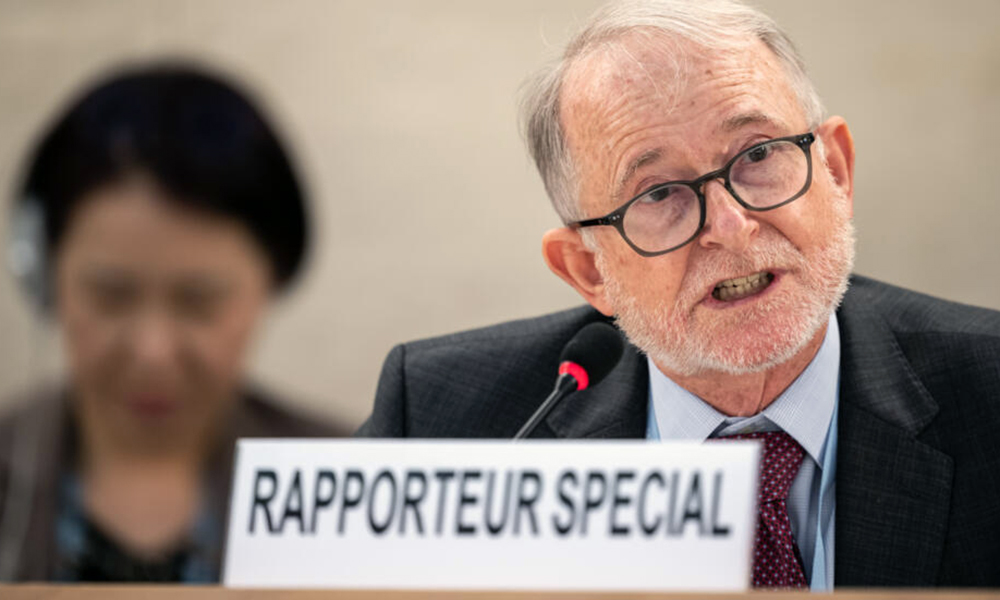
Richard Bennett, the UN Special Rapporteur on Human Rights in Afghanistan, has called for justice to be served over the unlawful killings by UK special forces in Afghanistan.
In a post on X on Monday, Bennett said the revelations in a recent investigation by BBC’s Panorama were “shocking”.
The Islamic Emirate also responded to the news and stated that foreign forces committed many war crimes in Afghanistan while stationed in the country over 20 years.
The IEA says these new confessions prove the extent of what transpired.
The BBC report featured testimony by several ex-soldiers on the unlawful killings while British troops were in Afghanistan.
These ex-soldiers told how British troops killed unarmed civilians in their sleep and executed blindfolded detainees.
One former soldier who served in Afghanistan recalled an incident in which troops “handcuffed a young boy and shot him. He was a child, not even close to fighting age.” He added that the killing of detainees by British special forces “became routine.”
Allegations of war crimes involving British forces in Afghanistan have circulated for years, and formal investigations are ongoing.
However, these inquiries and investigations by the BBC have still not led to any charges being brought against the alleged culprits or any meaningful justice for the victims.
-

 Health5 days ago
Health5 days agoJapanese charity Peshawar-Kai to resume leprosy treatment in Afghanistan
-

 Latest News5 days ago
Latest News5 days agoEx-Afghan deputy speaker Qadeer back in Kenyan court for criminal case
-

 Sport5 days ago
Sport5 days agoIndia suspends Indian Premier League T20 cricket tournament
-

 Latest News4 days ago
Latest News4 days agoPakistan says India launched attack on Afghanistan, India denies
-

 Latest News5 days ago
Latest News5 days agoMCC Chief: Afghan cadres sent to China for AI training
-

 World4 days ago
World4 days agoUS offers to help India and Pakistan start talks, G7 also urges dialogue
-

 Sport4 days ago
Sport4 days agoFIFA OKs creation of Afghanistan women’s refugee team
-

 Regional4 days ago
Regional4 days agoPakistan says it has launched military offensive against India




